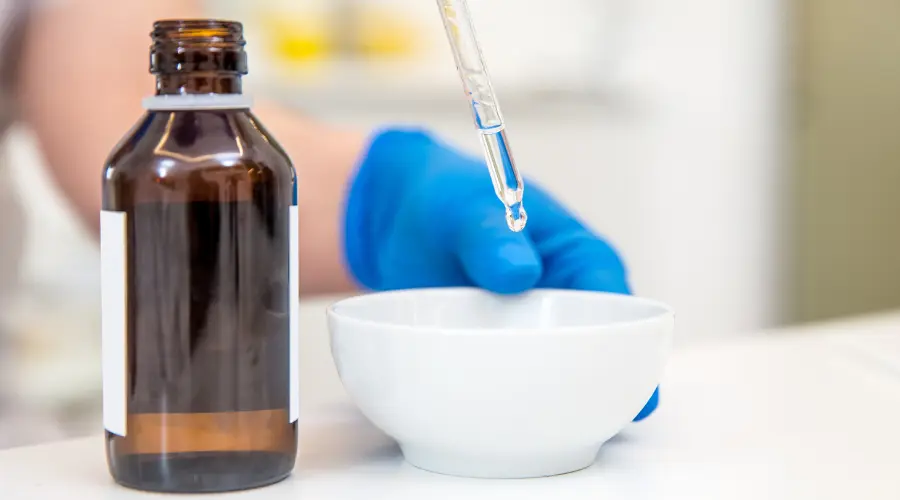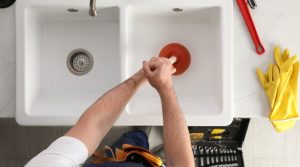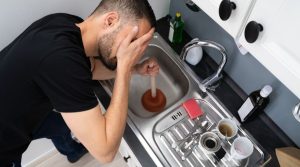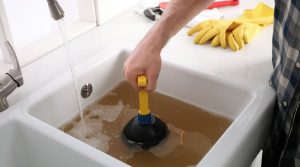Key Takeaway
- Chemical drain cleaners are often marketed as quick solutions for clogged pipes, but they pose serious risks to your plumbing, health, and the environment.
- These products contain harsh chemicals that dissolve blockages, yet their potential to damage pipes, cause health hazards, and contribute to environmental pollution makes them a dangerous choice.
- Safer alternatives, such as mechanical removal or eco-friendly solutions, provide effective clog removal while ensuring the safety of your home and well-being.
What’s Wrong with Chemical Drain Cleaners?
While chemical drain cleaners are frequently promoted as fast fixes for blocked pipes, the harsh substances they contain can cause more harm than good. These products often include chemicals like sulfuric acid, hydrochloric acid, or lye, which are designed to break down clogs but can also corrode your plumbing system, create serious health risks, and negatively impact the environment.
At CBJ Plumbers, we are dedicated to providing top-tier plumbing services for both residential and commercial properties. If you’re struggling with a clogged drain, let our experts help you find a safer and more effective solution!
Why Chemical Drain Cleaners Are Harmful to Your Drains
Chemical drain cleaners use potent substances to dissolve clogs, but their corrosive nature can gradually weaken your plumbing. Repeated use may lead to leaks, deterioration, or even complete plumbing failure. Additionally, the extreme heat and pressure generated by these chemicals can exacerbate existing plumbing issues, leading to costly repairs and system replacements.
How Do Chemical Drain Cleaners Work?
These products function by initiating a chemical reaction with the materials causing the blockage. For example, they generate heat and corrosive reactions to break down grease, hair, and soap scum. While this may seem effective, the process can produce excessive heat and pressure that damage pipes, particularly in older or delicate plumbing systems. Furthermore, if the cleaner does not fully dissolve the clog, it can leave behind a toxic residue that continues to harm your pipes over time.
What Are the Risks of Using Chemical Drain Cleaners?
1. Pipe Damage
The corrosive chemicals in drain cleaners weaken pipes over time, increasing the risk of leaks and expensive repairs. Continuous use can degrade plumbing materials, causing significant structural issues within your system.
2. Health Risks
Fumes from chemical drain cleaners can cause respiratory issues, eye irritation, and skin burns. Accidental spills can result in severe injuries, requiring immediate medical attention. Proper ventilation and safety precautions are necessary when handling these chemicals, but even with precautions, exposure remains hazardous.
3. Environmental Impact
When washed down the drain, these chemicals enter sewer systems and eventually contaminate water sources. This pollution harms wildlife, disrupts ecosystems, and contributes to long-term environmental damage.
4. Ineffectiveness
While chemical drain cleaners claim to clear clogs efficiently, they may not always be effective, especially for severe blockages. In cases where the clog persists, professional intervention is required, making the use of chemical cleaners an unnecessary and wasteful expense.
Safer Alternatives to Clear Clogs
1. Plumbing Snake
A plumbing snake, whether manual or powered, physically removes clogs without harming your pipes. This tool is effective for dislodging stubborn blockages and is widely used by professionals.
2. Baking Soda and Vinegar
A natural and non-toxic combination of baking soda and vinegar can break down minor clogs and help maintain clean pipes. This method is both environmentally friendly and safe for your plumbing system.
3. Boiling Water
Pouring boiling water down the drain can dissolve grease and soap scum buildup, clearing minor blockages without resorting to harsh chemicals. This simple yet effective method is suitable for many common drain issues.
4. Professional Plumbing Services
For persistent or severe clogs, consulting a professional plumber is the safest and most effective option. Experts have the necessary tools and expertise to address the problem without exposing your home to the risks associated with chemical cleaners.
Frequently Asked Questions (FAQs)
Q: Are chemical drain cleaners safe for all pipes?
A: No, chemical drain cleaners can weaken and corrode various plumbing materials, including PVC, metal, and older pipes. Over time, this damage can lead to leaks and costly repairs.
Q: Can chemical drain cleaners harm my septic system?
A: Yes, these chemicals can disrupt the balance of beneficial bacteria in septic systems, leading to reduced efficiency and potential system failure.
Q: What should I do if I accidentally inhale drain cleaner fumes?
A: Move to an area with fresh air immediately and seek medical attention if you experience dizziness, breathing difficulties, or eye irritation.
Q: How often should I use alternative clog-removal methods?
A: Regular maintenance using methods like baking soda and vinegar or boiling water can help prevent clogs from forming. Using a plumbing snake as needed can also keep your drains clear.
Q: When should I call a professional plumber?
A: If you have a persistent clog that does not respond to safer alternatives, or if you notice slow drainage, backups, or foul odors, it’s best to consult a professional to prevent further damage.
Conclusion
Although chemical drain cleaners may seem like a convenient fix, their potential dangers far outweigh their benefits. They can damage your plumbing, pose significant health risks, and harm the environment. By choosing safer, natural alternatives or seeking professional assistance, you can manage clogs effectively while protecting your home, health, and the planet.
For expert plumbing solutions and drain cleaning services, trust CBJ Plumbers to keep your plumbing system running smoothly. Contact us today for safe and effective clog removal!





